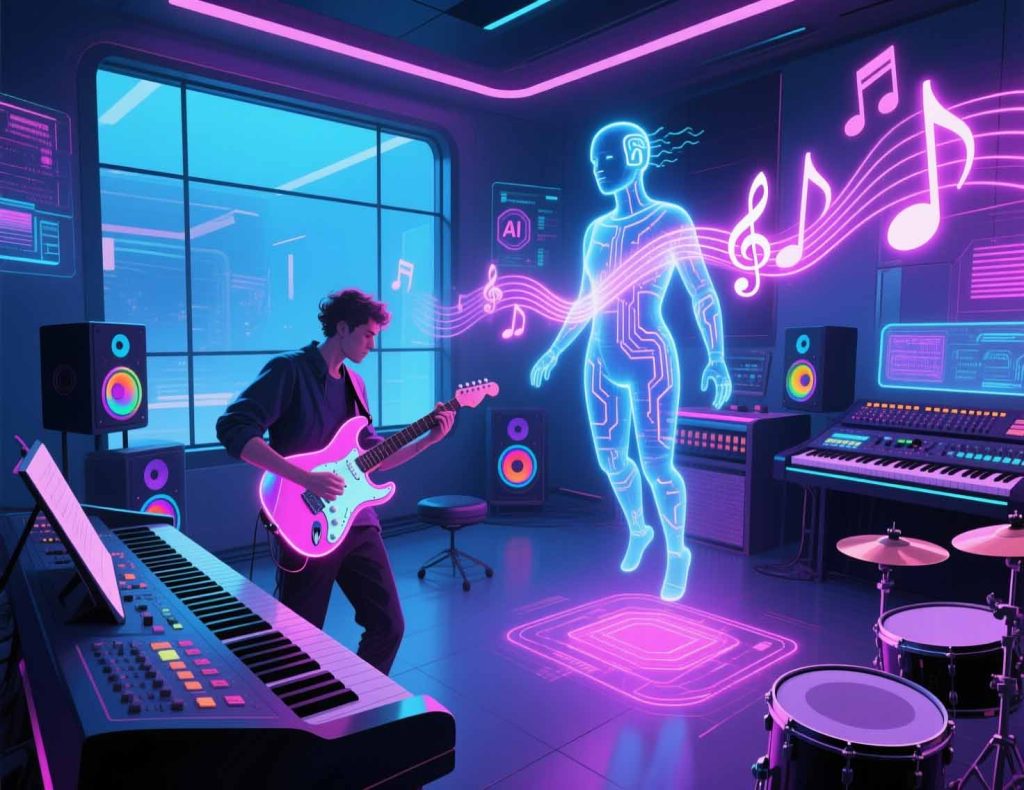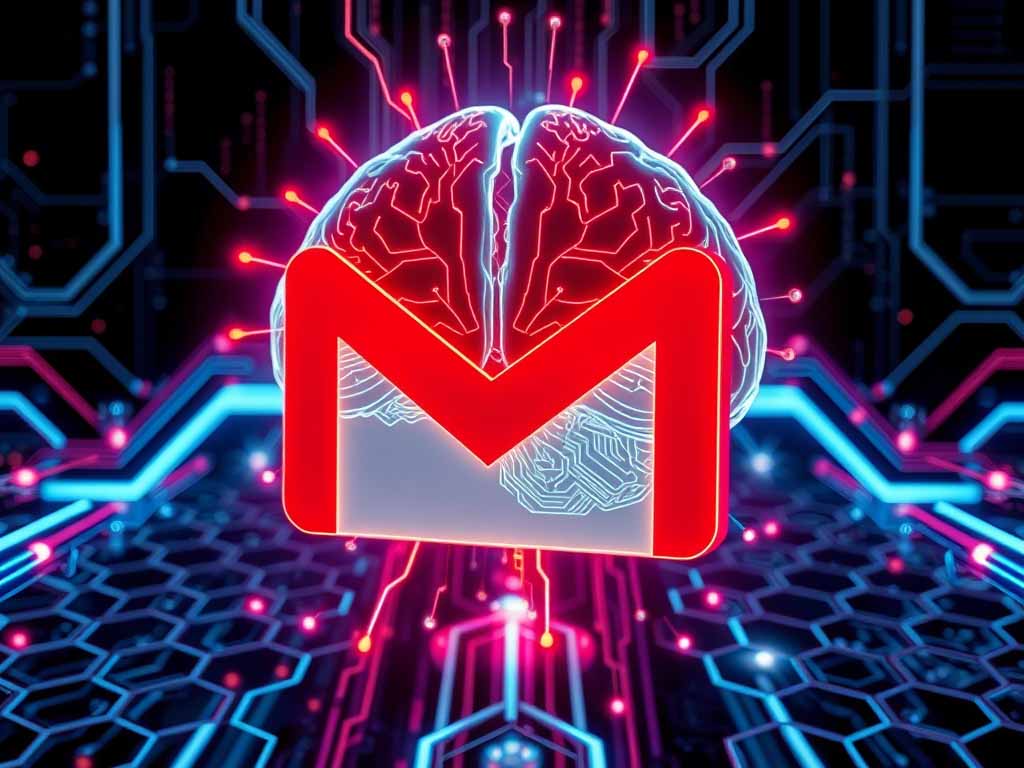Imagine this: you’re driving late at night, scrolling through playlists, and a song comes on that gives you goosebumps. The melody feels fresh, the lyrics hit home, and the rhythm syncs with your heartbeat. Later, you discover it wasn’t written by a human at all—it was composed by artificial intelligence.
Wild, right? But this isn’t sci-fi anymore. AI-generated music is real, it’s here, and it’s shaking up the industry. The big question is: should we be excited about AI music, or worried that robots might push our favorite artists off the stage?
How Does AI Make Music Anyway?
To understand what’s happening, let’s peel back the curtain. AI music systems don’t just randomly spit out sounds. They “learn” from massive libraries of existing music—classical symphonies, rock ballads, pop hits, you name it. By analyzing patterns, melodies, chord progressions, and even lyrical styles, they can create new tracks that sound eerily familiar yet surprisingly fresh.
Think of it like a chef who has tasted every dish in the world. After studying all those flavors, the chef can whip up new recipes that still feel comforting but bring something new to the table. That’s what AI is doing with sound.
The Rise of AI Music Tools
You might have already brushed shoulders with AI music without even realizing it. Platforms like AIVA, Amper Music, and OpenAI’s Jukebox are already generating compositions. Some are used in YouTube videos, games, and ads where budgets don’t allow hiring full-time composers.
Even big-name artists are experimenting. For example:
- Taryn Southern, a singer-songwriter, released an entire album co-created with AI.
- DJs are mixing AI-generated beats into club tracks.
- Startups are pitching AI tools to indie musicians, promising them Hollywood-style soundtracks without the hefty price tag.
So, whether you’re streaming, gaming, or scrolling through TikTok, chances are you’ve already vibed to AI-crafted music.
What AI Does Really Well
Let’s give the machines some credit. AI has clear strengths when it comes to music-making:
- Speed – What might take a human weeks to compose, AI can draft in seconds.
- Cost-Effectiveness – Small creators and businesses can get quality background tracks without breaking the bank.
- Personalization – Imagine a playlist that literally shifts to match your mood in real time—AI can analyze your heart rate, weather, or activity and generate the perfect soundtrack.
- Experimentation – AI isn’t bound by tradition. It can mash classical violins with techno beats or jazz with lo-fi in ways humans might not think of.
Where AI Still Falls Flat
But here’s the catch—music isn’t just math and melody. It’s emotion, pain, joy, rebellion, and sometimes, messy human experience. This is where AI struggles:
- Lyrics with Soul: Sure, AI can string words together, but can it really capture heartbreak like Adele or angst like Kurt Cobain? Not quite.
- Authenticity: Part of loving music is knowing the story behind it—the artist’s struggles, the late-night recording sessions, the real tears poured into a song. AI doesn’t have a backstory.
- Connection: Fans don’t just follow songs; they follow people. We buy concert tickets, wear merch, and scream lyrics because we feel connected to an artist, not a machine.
So while AI can write a catchy tune, it still lacks the lived experiences that turn music into something unforgettable.
The Fear: Will AI Replace Human Musicians?
It’s tempting to jump to the conclusion that AI will replace artists altogether. After all, if a label can churn out hit songs with zero egos, zero drama, and minimal cost, why wouldn’t they?
But here’s the thing—music is more than sound waves. It’s a cultural conversation. AI might create the notes, but it can’t start a movement. Remember how Bob Dylan’s lyrics fueled social change? Or how Beyoncé’s performances empower millions? That’s not something an algorithm can replicate.
What’s more likely is a partnership between humans and AI. Artists will use AI like a supercharged instrument—another tool in their creative toolbox. Just like synthesizers didn’t kill guitars, AI won’t kill musicians. It will just expand what’s possible.
Real-Life Example: The Beatles (Sort of)
Here’s a fun twist: in 2023, AI helped create a “new” Beatles song using John Lennon’s old vocals. With advanced tools, producers were able to clean up rough recordings and stitch them into something polished. Was it authentic? Kind of. Was it emotional? For fans, absolutely.
That’s the magic—AI isn’t just about making new songs; it can also resurrect or enhance old ones, giving us connections to music we thought was lost forever.
What This Means for Fans Like Us
So, should you be worried? Probably not. AI music is exciting, but it doesn’t erase what makes your favorite band or artist special. In fact, it might do the opposite:
- More Music: Expect an explosion of new sounds and genres.
- More Accessibility: Small artists without big budgets can finally compete with big studios.
- New Experiences: Imagine concerts where the setlist is partially generated live by AI, reacting to the crowd’s energy.
Instead of replacing human creativity, AI could democratize it—helping more voices, more sounds, and more stories reach the world.
The Human Touch Still Wins
Here’s the truth: when you listen to your favorite artist, you’re not just hearing music. You’re hearing their story, their late nights, their heartbreaks, their triumphs. AI can mimic the notes, but it can’t live the life behind them.
That’s why, no matter how advanced the tech gets, people will always crave human-made music. Because music isn’t just heard—it’s felt.
Final Thoughts
AI-generated music is fascinating, powerful, and a little scary. But instead of asking, “Will robots replace my favorite artist?” maybe we should ask, “How will AI change the way we make and experience music?”
Chances are, the future of music won’t be robots taking over—it’ll be humans and AI jamming together, creating sounds we can’t even imagine yet. And honestly? That’s a stage I’d love to see.



